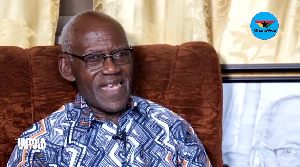Regional News of Wednesday, 18 February 2004
Source: GNA
Special package for teachers in deprived areas
Ho, Feb. 18, GNA- Teachers serving in deprived areas would qualify to go on study leave with pay a year earlier than their counterparts in urban areas, a statement by the Director-General of the Ghana Education Service (GES) said on Wednesday.
It said while those in the better endowed areas would qualify three years after certification or since returning from the last approved course, those in the deprived areas can go back to school after serving for only two consecutive years.
The statement said the GES Council has put a ceiling of 3,000 study leave awards with pay for the 2004/2005 academic year.
Other conditions for qualification are; non-professional graduate teachers, at least one year before taking the PGDE Course, it said. Those who are on secondment would have to serve at least two years before embarking on any course while members of the service who vacate post would also have to serve at least five years before embarking on any course, the statement stressed.
The GES Council's approved subject/courses for study leave have been categorised into four, each with a quota in percentage.
Subjects/courses for group one which has 55 per cent quota are Mathematics, English, Integrated Science, French, Science, Agricultural Science, Technical and Vocational Skills.
Group two with 30 per cent quota has 13 subjects/courses which include, Secretariat Management, Business Education (B.Ed), Laboratory Technician, Geography, Fine /Industrial Art, Physical Education, Accounting and Religious Studies.
Subjects/courses under group three, which has 5 per cent quota are Information Studies, Education-Certificate in Education (Technical Teachers) and Store Management.
Group four has 10 per cent quota and has eight subjects including Music, Administration and Management, Public Relations, Education Planning and Administration.
Eight subjects were listed for courses solely for non-teaching staff. Education planners and officials have blamed the perennial shortage of teachers partly on bulk of teachers sometimes as high as 8,000 who proceed on study leave every academic year.










